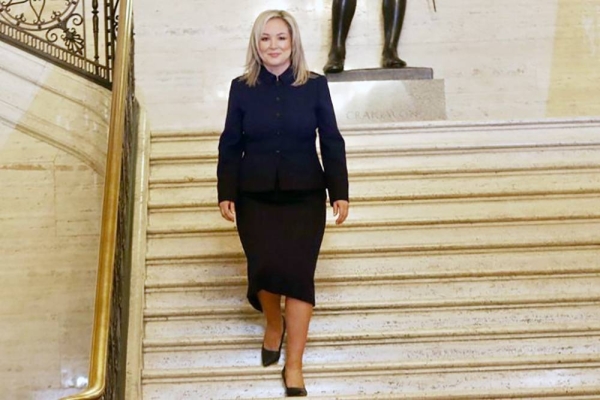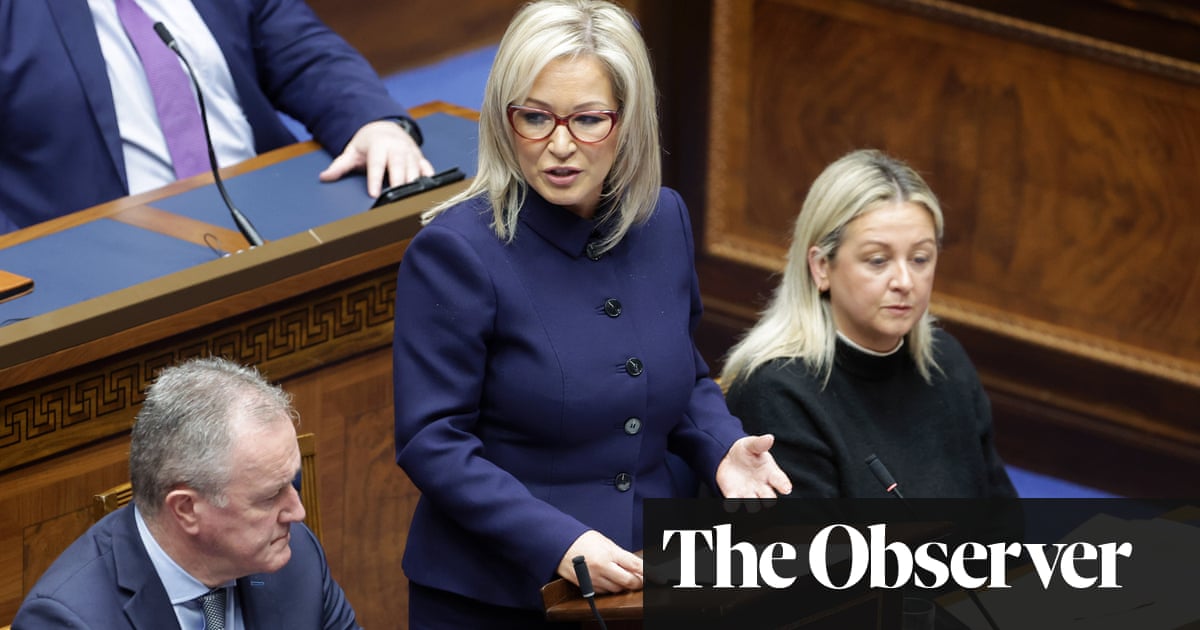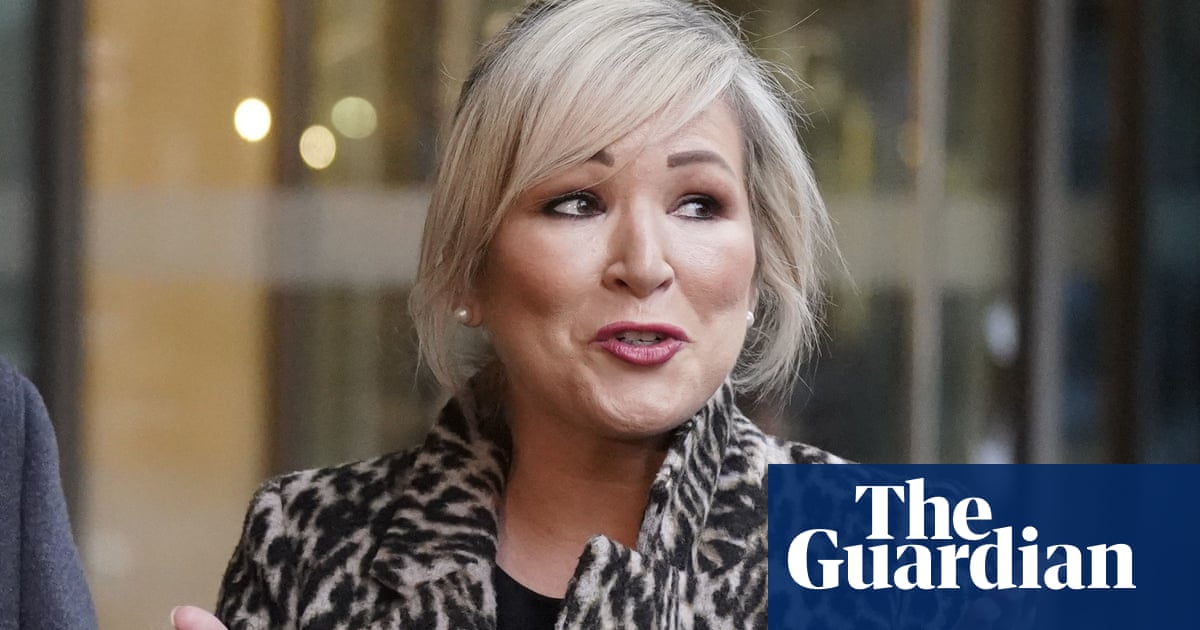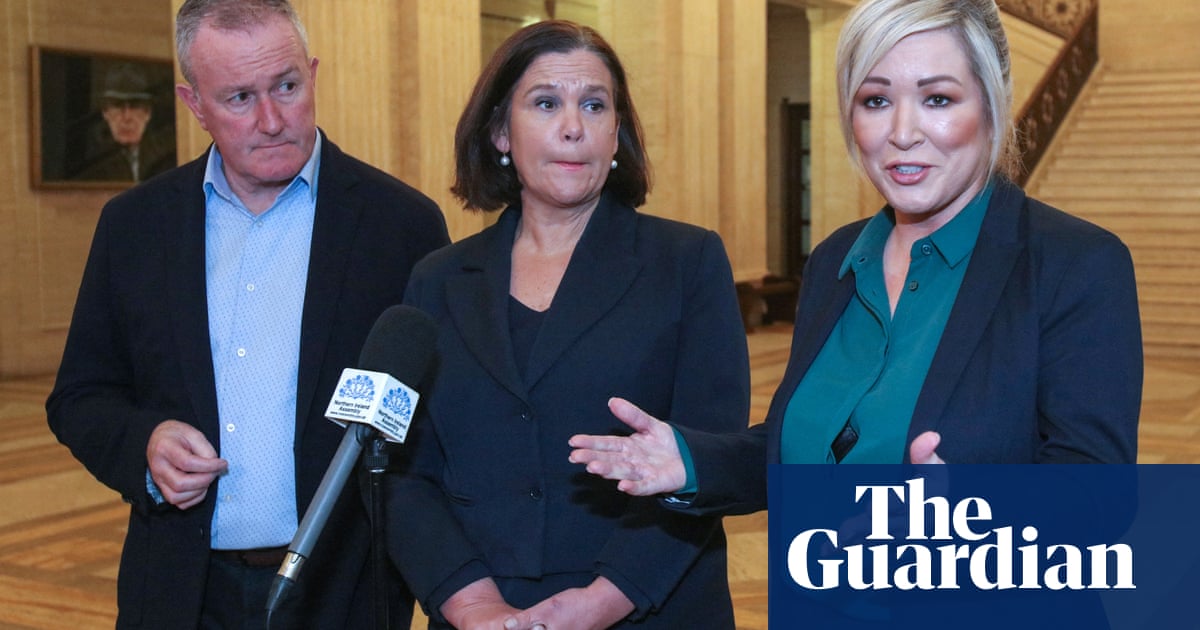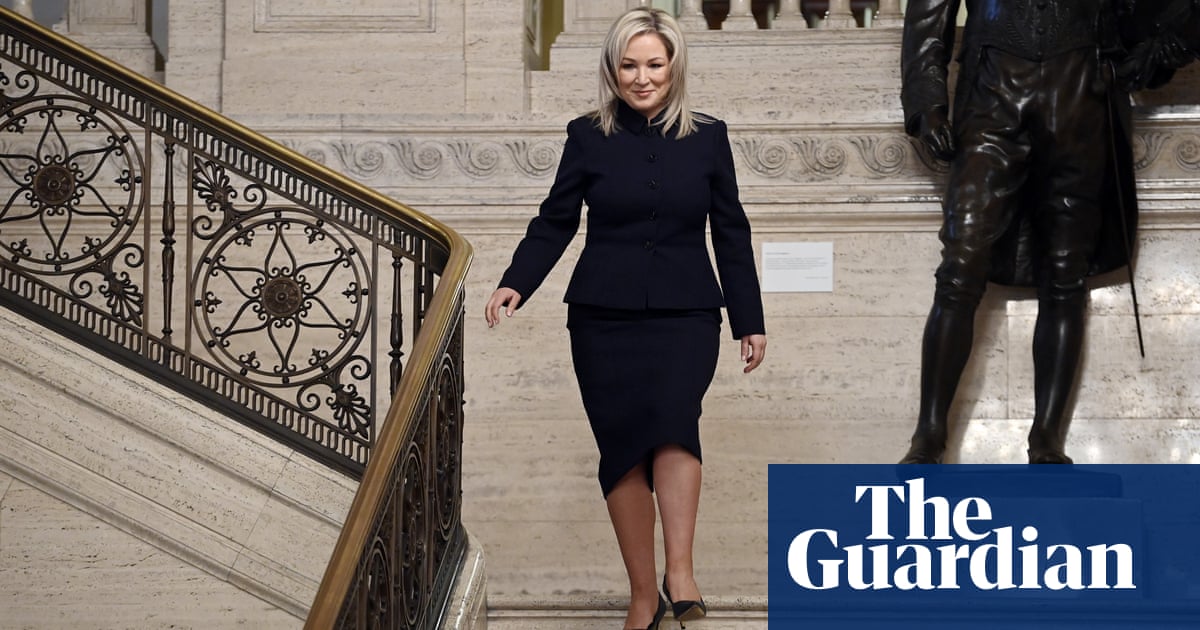
Northern Ireland’s devolved government has reconvened and appointed Michelle O’Neill as first minister in a historic moment for Sinn Féin and Irish nationalism.
The Stormont assembly nominated the County Tyrone republican as the region’s first nationalist first minister – and the first non-unionist executive leader since the partition of Ireland in 1921.
O’Neill avoided triumphalism and made no explicit mention of Irish unity in an inaugural address that focused on reconciliation and bread-and-butter issues.
“Wherever we come from, whatever our aspirations, we can and must build our future together,” she said. “We must make power sharing work because collectively, we are charged with leading and delivering for all our people, for every community.”
The appointment of a republican first minister represented “a new dawn” unimaginable to previous generations that grew up with discrimination against Catholics, said O’Neill. “That state is now gone.”
O’Neill will jointly lead the executive with Emma Little-Pengelly, a Democratic Unionist who was nominated deputy first minister, a post with equal power but less prestige.
The devolved government reconvened after the Democratic Unionist party (DUP) walked out of Stormont on 3 February 2022 in protest against post-Brexit trading arrangements that it said undermined the region’s place in the UK. The party agreed to end the boycott this week after its leader, Sir Jeffrey Donaldson, wrung concessions from the UK government that smoothed the so-called Irish Sea border.
O’Neill, Sinn Féin’s deputy leader, became first minister in accordance with a May 2022 assembly election in which the republican party overtook the DUP as the biggest party, a seismic symbolic and psychological shift.
The former DUP leader, Edwin Poots, was elected as speaker by members.
O’Neill had played down constitutional issues in the run-up to the sitting but earlier this week Sinn Féin’s leader, Mary Lou McDonald, said Irish unity was now within “touching distance”.
Sinn Féin, the DUP, the Alliance and the Ulster Unionist party will share ministerial positions using the D’Hondt mechanism based on party strengths, with the exception of the justice ministry, which is decided using a cross-community vote. The Social Democratic and Labour party will form the executive’s opposition.
The executive faces a daunting list of problems including a fiscal crisis, crumbling public services and eroded faith in democracy.
Stormont’s restoration will release a £3.3bn package – including pay rises for public sector workers who have staged multiple strikes – that the UK government had made available, conditional on the revival of institutions set up under the 1998 Good Friday agreement. Donaldson said the parties would seek additional funding from the Treasury. “The finance piece is unfinished business which we intend to finish.”
Business leaders and the Irish government have welcomed the return of power sharing, saying it should provide stability after years of Brexit-related convulsions.
The new rules to smooth trade across the Irish Sea were unveiled by the government on Wednesday. The measures remove routine checks on goods from Great Britain that are destined to remain in Northern Ireland and replace them with a “UK internal market system” for goods that remain within the UK.
The House of Commons approved the changes on Thursday without a formal vote, despite Brexiters’ concerns about the region remaining under EU law.




